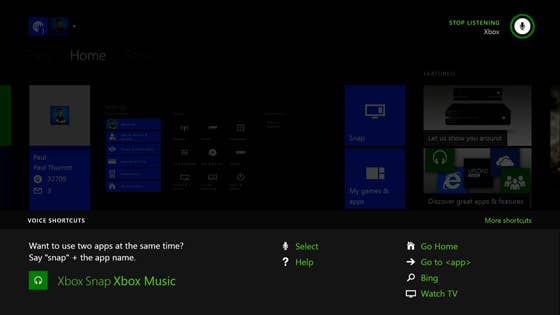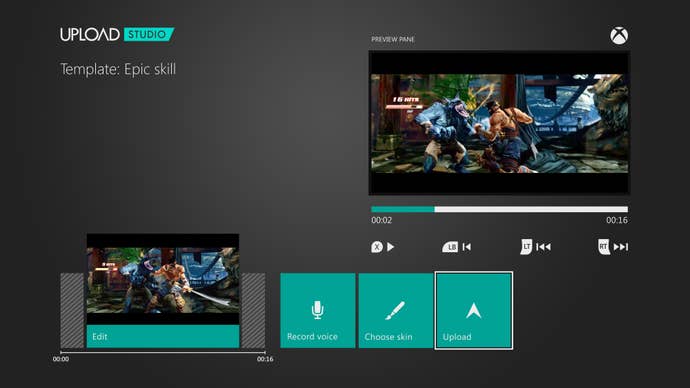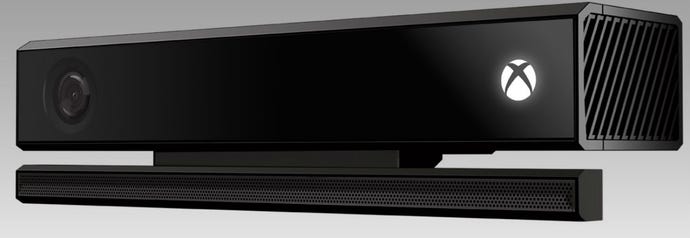E3 2014: Kinect! Where Are You?
Kinect has had plenty of exposure over the last year or so, both positive and negative. But at Microsoft's E3 2014 keynote, it got no exposure at all. What's going on?
This article first appeared on USgamer, a partner publication of VG247. Some content, such as this article, has been migrated to VG247 for posterity after USgamer's closure - but it has not been edited or further vetted by the VG247 team.
At last year’s E3 keynote, Microsoft had some work to do. In the weeks leading up to the official Xbox One rollout, the Redmond company had been on the receiving end of some vicious backlash.
Firstly, it had mooted an aggressive Xbox One DRM program that required an always-online connection, and software authentication every 24 hours – even for offline games. That was met with a wall of negativity, and, following some ill-advised defending of its position, Microsoft eventually backed down. Or rather “balanced the needs of consumers and the industry.”

There was a similarly poor reaction to Microsoft's announcement that users would be required to connect Kinect to their Xbox One and have it on at all times. A slew of complaints ensued – mostly around privacy issues – and once again, Microsoft backpedaled.
The negative press surrounding Kinect did it absolutely no favors, and while the device is certainly an excellent piece of technology that can be used in interesting ways, the fact that every Xbox One console would be shipped with one wasn't necessarily seen as a good thing. Especially since this addition seemed to elevate the price of an Xbox One to $100 more than a PlayStation 4.
To make things worse, Microsoft went into E3 off the back of a disappointing pre-E3 launch keynote that had been broadcast a few weeks earlier. It had heavily focused on the “all in one” Xbox One’s multitasking, TV, Skype and entertainment capabilities, and underplayed the gaming aspect of the console. Kinect’s technology was also talked up. We were told it could recognize you and your family, had 13 billionths of a second accuracy, and 2 gigabits of data per second to help it understand you and your world. It seemed that Microsoft had big plans for the device – going even so far as showing a demo in which Kinect read a user’s heart rate.
While it was clear that Microsoft was using this inaugural keynote to showcase the Xbox One as a more universal entertainment system ahead of its games-focused E3 rollout, the media and consumes alike didn't cut the company much slack, and reaction was mixed at best.

At its E3 keynote, however, there was a strong whiff of redemption in the air. Microsoft showcased Xbox One very much in a gaming light, and things looked positive. Kinect wasn’t really featured much at all - very likely because apart from Kinect Sports Rivals and some basic functionality folded into Killer Instinct, Zoo Tycoon, and Fighter Within, there was little to trumpet
A year later, despite many positive strides forward, Microsoft still looks somewhat embattled. Xbox One sales figures have been rather poor of late, and if the latest numbers are anything to go by, it was outsold by Wii U in May. A surprising development and one that puts Microsoft’s decision to axe the much-maligned Kinect as a pack-in device so that Xbox One can be sold at a price comparable to PS4 into sharp perspective.
So what does that mean for Kinect?
I’m not going into the details of Microsoft's keynote today – the rest of the team are talking about it in their own articles – but what’s relevant here is that Microsoft pushed games for all they were worth, but did not push Kinect at all. Dance Central Spotlight was mentioned briefly, which is very likely a Kinect game. Later in the day at its own keynote, Ubisoft showed Just Dance 2015 – also likely a Kinect game. But that’s it so far.

At this point, I’m just wondering what Microsoft's plans are for Kinect. It was originally designed as a seemingly integral part of Xbox One, but now finds itself way out on the sidelines. It’s barely supported by software, and is no longer a mandatory part of the console. Perhaps it’s had its day? I’ll be looking for Kinect games at the show to see just what its future might have in store beyond the dancing (and fitness perhaps) programs it seems to excel at. But at this point, it seems like a rather expensive piece of tech that's fast going out of favor - with both consumers, and the people who make it.
